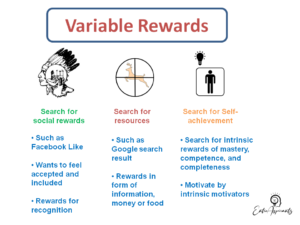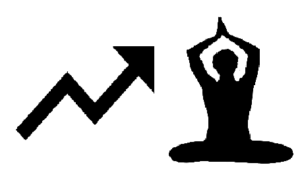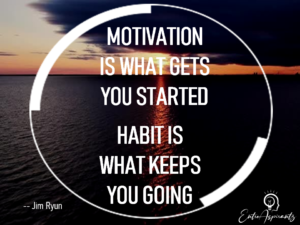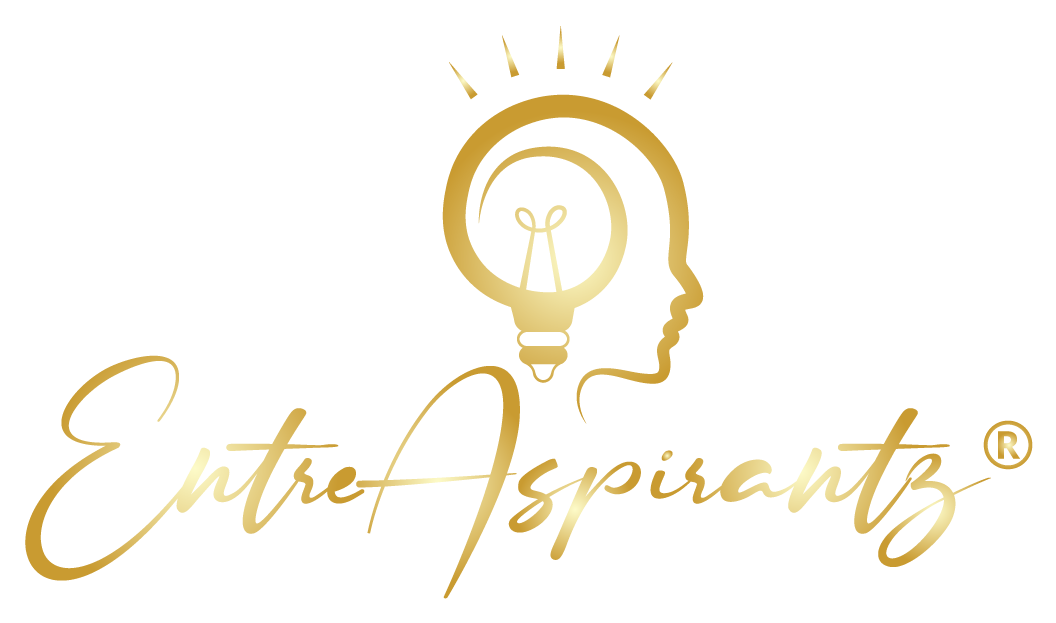What kind of rewards trigger your habit?

These variable rewards must meet users’ demands while leaving them eager to reengage with the habit loop, as we taught in the last article on cue-routine-reward. Variable rewards are divided into three categories and entail the pursuit of: rewards of the tribe, the hunt, and the self. Though the tools have evolved, the fundamental purpose for each has remained same.
The Tribe

Our brains have evolved to seek out rewards that make us feel accepted, appealing, significant, and included. It is fueled by our interconnectedness with others. Facebook, for example, offers countless examples of social benefits. A “Like” button and comments provide tribal approval, encouraging individuals to keep sharing.
The Hunt

In our last post on the rat experiment, we learned that by repeating the same activity, racing across the maze, the rat would receive a reward (chocolate). This is the Hunt’s Reward – Part of our brain’s operating system is the drive to collect tangible items such as food and other resources that enhance our survival. It might take the form of money, knowledge, or physical assets. For example like a gambling machines, it entices players by awarding money yet winning is completely out of the gambler’s control, but the chase may be exhilarating.
The Self

Reward of the Self is the pursuit for intrinsic rewards of mastery, competence, and completeness. We are looking for a more personal form of fulfillment as a reward. Seeing a task through to completion can encourage people to continue a variety of behaviors. Self-satisfaction is motivated by “intrinsic motivation,” which is when we want personal improvement or a sense of competence. People, according to their self-determination theory, want to achieve a sense of competence, among other things. Adding a layer of mystery to his quest makes it all the more appealing.
Cognitive dissonance avoidance
To further increase on our motivations with variable rewards, we tend to avoid cognitive dissonance by changing our perceptive to reconcile our contradictory notions to reduce the pain. Consider you not liking spicy food as our bodies are designed to reject the heat sensation. However, through repeated exposure over time and seeing others seem taking so much pleasure on it, we condition ourselves to alter our viewpoint on something we once did not enjoy.
Key takeaway
Successful entrepreneurs build products that they would use themselves and believe would improve the lives of others. They fulfill the moral obligation of an entrepreneur’s attribute by increasing the quality of life for those around them.
Brainstorm three ways your product/service could use to heightened customers’ interest in variable rewards. Determine what aspects of using your products or services your customers love or find motivating. We are more inclined to appreciate something if we put effort into it; we are also more likely to be consistent with our past behavior; and finally, to avoid cognitive dissonance, we change our preferences.


